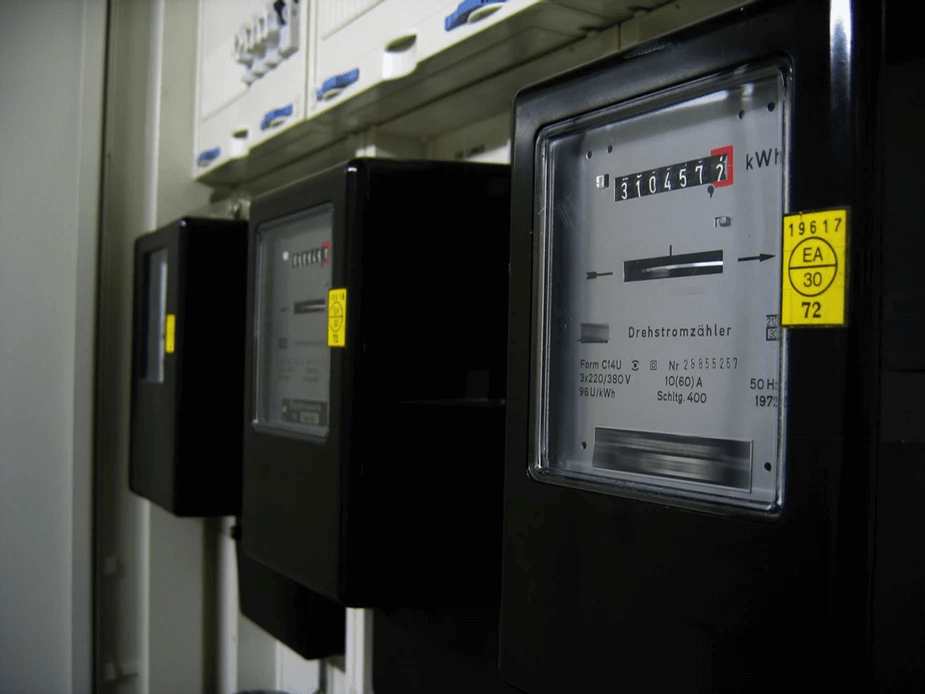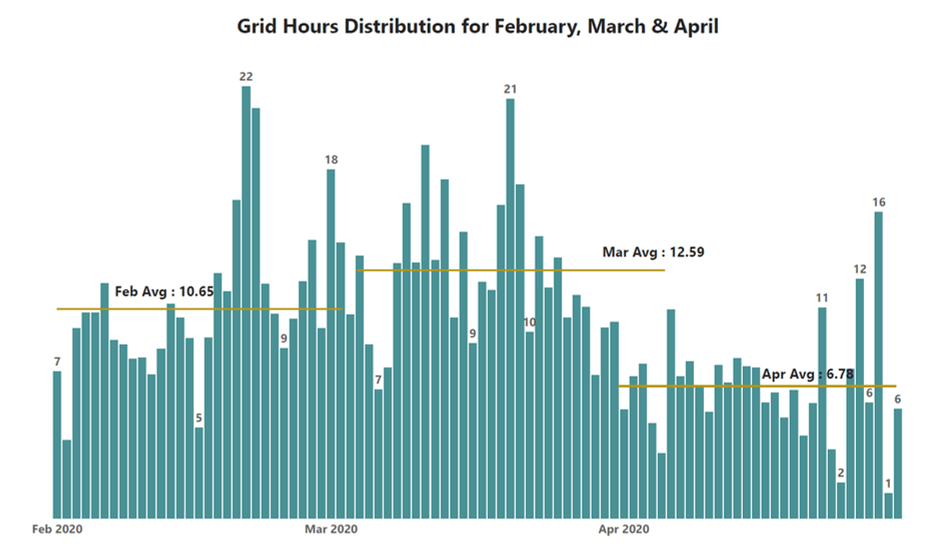The utility grid, diesel generator, solar energy are common sources of energy for commercial and residential buildings in Nigeria. The average building requires multiple energy sources to ensure continuous power supply. Therefore, overall energy costs are greatly influenced by the energy mix between these sources and can be efficiently managed if energy consumption is properly tracked.
The grid may seem to be the cheapest, but the energy availability is an ongoing issue. The chart below shows the grid availability distribution (hours) of one of our clients in Lekki, over three months.
In February and March, before activities were shut down due to the COVID-19 pandemic, grid availability maintained an average of up to 12 hrs. However, in April, the grid supply was decreased by the DISCO to about 7 hours on average. The client was also conservative about energy consumption by putting specific management measures in place, but his energy bill did not reflect these reductions in use and availability.
During the pandemic, the diesel price reduced by 10% in Nairas terms and 30% in USD terms, as the initial cost per liter was about 0.66USD/ltr, and now it is less than 0.46 USD/ltr. This shift in energy price may significantly reduce the running costs for the generator.
Solar seems like a viable and eco-friendly alternative as it does not incur high operating costs, but the high capital cost for setting up a sizable system is only justifiable for long term investments. Solutions exist to amortize those payments with providers charging monthly. When considering solar energy, you need to make sure it’s feasible for your specific setup as there are key factors to consider before investing in solar, such as solar production, costs & location.
In conclusion, the grid availability use case explained above, shift in diesel prices and solar investment, all point to the importance of understanding your energy consumption and energy mix as it would help save costs and be in full control of your energy.

